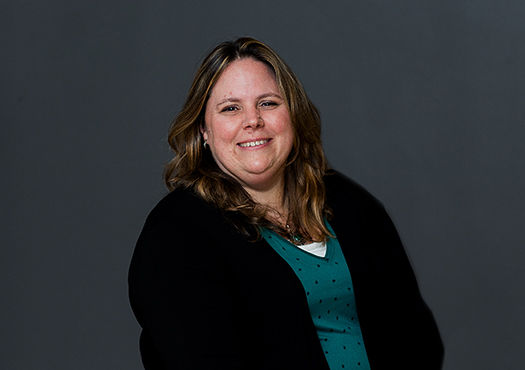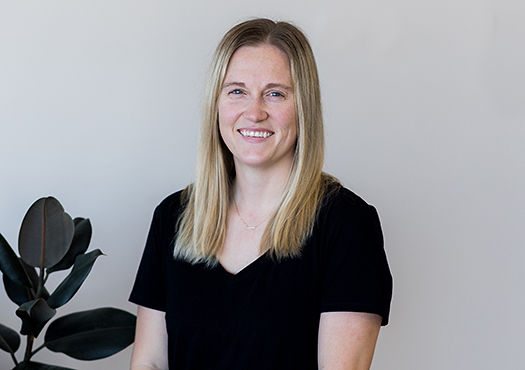OCCUPATIONAL THERAPY
Helping you improve motor and cognitive function, sensory and psychosocial skills to return to daily life activities.
WHAT IS OCCUPATIONAL THERAPY?
Occupational therapy is a type of health care that helps you improve motor and cognitive function, as well as sensory and psychosocial skills needed to return to activities related to daily life, like self-care, performing your job or attending school and participating in leisure activities.
The word “occupational” can be misleading. This profession is not about vocational counseling or work training.
Registered occupational therapists (OTs) assess and treat conditions that may be present from birth or acquired. They can work with people of all ages. OTs address barriers that are interfering with your ability to participate in daily activities by helping you learn new skills or regain abilities lost due to an injury.
Occupational therapy services can include manual techniques, therapeutic exercises, modalities, fabricate splints and adaptations to help restore function and improve independence.
In summary, occupational therapy helps solve the problems that interfere with your ability to do the things that are meaningful to you.
WHAT'S THE DIFFERENCE BETWEEN OT & PHYSIOTHERAPY?
Occupational therapists often work on a team with physiotherapists, but the two roles are distinct. Physiotherapists help people restore physical function; occupational therapists focus on how that function affects the ability to do the things that are important to you.
Physiotherapy focuses on restoring or improving movement, strength, and range of motion. Occupational therapy aims to improve the motor skills you need to perform daily tasks. Which type of therapy you choose depends on your specific condition and individual needs.
WHY CHOOSE PROPEL FOR OCCUPATIONAL THERAPY?
Propel Physiotherapy is one of the leading assessment and rehabilitation centres for people recovering from neurological, complex orthopaedic, and sports-related injuries in Canada. We offer a multidisciplinary team with physiotherapists, chiropractors, registered massage therapists and exercise physiologists who work together to maximize your recovery.
Occupational therapy may be recommended when a neurological, complex orthopedic or sports related injury is impacting your ability to perform daily tasks. Occupational therapists can provide care for:
- recovery from an injury or surgery
- pain management
- neurological conditions, such as multiple sclerosis, cerebral palsy, or recovery from a stroke
- joint conditions, such as osteoarthritis and rheumatoid arthritis
- upper extremity injuries, such as tendinitis, carpal tunnel syndrome and trigger finger
- psychological conditions, such as depression and anxiety
- dementia or Alzheimer’s disease
NEUROLOGICAL OCCUPATIONAL THERAPY
- Spinal Cord Injury Rehabilitation
- Brain Injury Treatment (ABI & TBI)
- Stroke Rehabilitation
- Multiple Sclerosis Management
- Treatment for Amyotrophic lateral sclerosis (ALS) Symptoms
- Guillain-Barre Syndrome (GBS) Treatment
- Transverse Myelitis Treatment
- Brachial Plexus Injury Treatment
- Dystonia Treatment
- Treatment for Parkinson’s Disease Symptoms
- Peripheral Nerve Injury Treatment
The occupational therapist provides a comprehensive assessment and designs a treatment plan based on your needs and goals. Examples of needs and goals that might be part of occupational therapy treatment include:
- Exercises to improve posture, flexibility to reduce pain and improve mobility and the use of the arms
- Strengthening and coordination activities to improve gross motor function to improve your ability to reach engage your arm/hand in functional tasks such as laundry, cooking.
- Fine motor exercises to improve hand function such as writing or managing a zipper.
- Sensory training to improve tactile discrimination and reduce hypersensitivity
- Learn or relearn strategies to perform activities of daily living such as dressing, grooming, eating
- Explore adaptation and environmental changes to facilitate your daily task performance
- Fabrication of splints and adaptations based on the specific condition
- Teach you strategies for stress management that may be impacting your ability to perform better
- Educate your loved ones and caregivers on how to effectively support you in your day-to-day life
ORTHOPEDIC OCCUPATIONAL THERAPY - HAND THERAPY
Occupational therapy is also beneficial and recommended for acute or chronic injuries especially related to the upper extremity. We have extensive experience treating aches, pain, strains caused by everyday life – work, sport, recreation.
The focus of our services is to provide high quality treatment for a variety of upper extremities injuries in acute or chronic stages of the recovery.
Some of the common injuries that we are treating include:
- Fractures and dislocation of the upper extremity
- Cumulative trauma disorders: tendonitis, carpal tunnel syndrome, etc.
- Entrapment neuropathy
- Trigger finger
- Ligament injuries
- Tendon injuries
- Boutonniere deformities, swan-neck, mallet finger
- Dupuytren’s disease
- Brachial plexus injuries and plexopathies
- Complex regional pain syndrome
- Arthritis
- And all upper extremity conditions that requires splinting, treatment and or adaptive equipment.
- SAEBO training for neurological conditions (stroke and brain injury)
Ergonomic assessment, education, and prevention programs are also offered to foster healthy use of the hands for individuals that overuse their hands in their day-to-day work and activities.
HOW MANY OCCUPATIONAL THERAPY SESSIONS WILL I NEED?
The number of sessions you will need depends on your diagnosis, the severity or chronicity of your injury, your past medical history, and a variety of other factors. You may only need the treatment and education that you receive during the initial assessment, or you may need months of rehabilitation.
WHAT HAPPENS AT THE FIRST OT APPOINTMENT?
At the first appointment your occupational therapist will take a full history and perform various tests and assessments to determine how the injury is impacting your function. If treatment is required, it will also be provided during the first visit. Once the assessment is completed you and your occupational therapist will create a program that is tailored to your specific needs and goals. This will be discussed in detail with you during your initial visit.
HOW LONG IS AN OCCUPATIONAL THERAPY APPOINTMENT?
Depending on the nature of your injury the assessment could range from 45 minutes to 1.5 hours in length. This will be discussed prior to your assessment. The number and length of follow-up visit can also vary and will be discussed once your initial assessment is completed.
DO I NEED A DOCTOR'S NOTE FOR OCCUPATIONAL THERAPY?
You do not need a doctor’s note or referral to see an occupational therapist. Occupational therapists are regulated health professionals. Please note that some extended health care plans require a physician’s note to have occupational therapy expenses reimbursed. We do encourage open communication with your doctor(s) and you can let us know at your first visit if you would like them to be included in your correspondence.
DOES INSURANCE COVER OCCUPATIONAL THERAPY?
Your occupational therapy visits may be covered under an employment plan that you or a spouse or parent has. You will be encouraged to check the details of that plan and submit your receipts for reimbursement.
OHIP (government-funded) coverage for occupational therapy services is only available at OHIP-licensed facilities for Ontario residents under the age of 18 or over 65. Propel Physiotherapy is not an OHIP-licensed facility.
We provide treatment for all Motor Vehicle Accident and WSIB cases.
CAN I GET OT TREATMENT AT HOME OR IN THE COMMUNITY?
Yes, our therapists regularly see clients in the home and at locations in the community like public pools or parks. Please note there is a travel fee.
CAN OCCUPATIONAL THERAPY BE DONE VIRTUALLY?
Yes, occupational therapy assessment and treatment can be done virtually with the exception of treatment that requires splint fabrication, equipment adaptation and scar management. Our therapists use a secure and private online platform to deliver evidence based virtual care.
WHAT KIND OF OCCUPATIONAL THERAPY WILL I HAVE?
Occupational therapy treatment is a hands-on approach to treating neurological and orthopedic conditions. Our approach to treatment programs is active movement-based. We also use a number of other modalities (functional electrical stimulation) as well as treatment techniques such as taping, exercise to optimize functional recovery and splinting.
WILL I NEED TO DO EXERCISES AT HOME ON MY OWN?
Yes, your occupational therapist will prescribe exercises you can do at home. Performing home exercises will help to ensure a greater degree of and more timely recovery from your injury.
OUR LOCATIONS
CLINIC LOCATION
1 Eva Rd., Suite 107
Etobicoke, ON, M9C 4Z5
1-866-210-6303
CLINIC HOURS
Monday 8:00 – 7:00
Tuesday 8:00 – 7:00
Wednesday 8:00 – 7:00
Thursday 8:00 – 7:00
Friday 8:00 – 7:00
Saturday 8:00 – 12:30
Sunday CLOSED
visit the Propel Physiotherapy Etobicoke location page for more info
CLINIC LOCATION
1099 Kingston Rd., Suite 5A
Pickering, ON, L1V 1B5
1-866-210-6303
CLINIC HOURS
Monday 8:30 – 7:00
Tuesday 8:30 – 7:00
Wednesday 9:00 – 6:00
Thursday 8:30 – 7:00
Friday 8:30 – 7:00
Saturday 8:00 – 12:30
Sunday CLOSED
visit the Propel Physiotherapy Pickering location page for more info
CLINIC LOCATION
1600 Lansdowne St. W., Unit 9,
Peterborough, Ontario, K9J 7C7
mobile services for Peterborough & surrounding areas
1-866-210-6303
CLINIC HOURS
Monday 8:00 – 7:00
Tuesday 8:00 – 7:00
Wednesday 8:00 – 7:00
Thursday 8:00 – 7:00
Friday 8:00 – 7:00
Saturday 9:00 – 1:00
Sunday CLOSED
visit the Propel Physiotherapy Peterborough location page for more info




